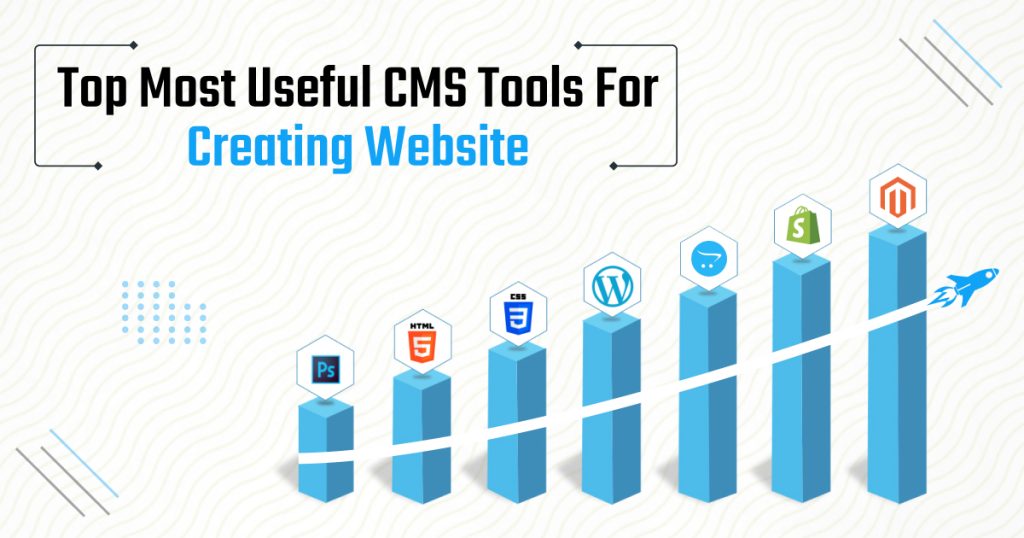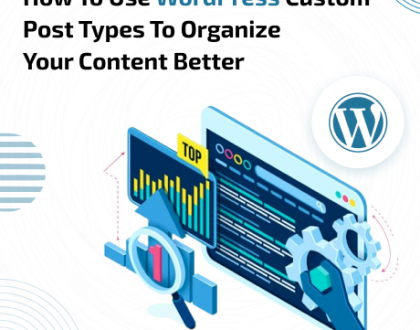
Choosing the right content management system (CMS) is crucial for building a website that meets your business needs. A CMS allows you to create, manage, and modify website content without specialized technical knowledge. Among the many options available, Magento, WordPress, Shopify, and OpenCart stand out as some of the most powerful and versatile CMS tools. In this blog, we’ll explore each of these platforms, their key features, and the types of websites they are best suited for.

I found the top most useful CMS tools for creating websites! From S to W to C55, these tools are essential for web development. #webdesign #CMS #HTML5
Magento (Adobe Commerce)
Overview:
Magento, now known as Adobe Commerce, is a powerful open-source CMS specifically designed for e-commerce. It’s known for its flexibility, extensive customization options, and scalability, making it ideal for businesses looking to grow their online presence.
Key Features:
- Customization: Magento offers robust customization capabilities with thousands of themes and extensions available. This allows businesses to tailor their website’s appearance and functionality to their exact needs.
- Scalability: Suitable for small businesses to large enterprises, Magento can handle extensive product catalogs and high traffic volumes, scaling as your business grows.
- SEO and Marketing Tools: Magento includes built-in SEO features, such as customizable meta tags and URLs, as well as marketing tools like promotions, upselling, and cross-selling.
- Multi-Store Management: Manage multiple stores from a single backend, making it easier to oversee various sites or brands.
Best For:
Medium to large businesses with complex e-commerce needs, or those looking to scale their operations.
Shopify
Overview:
Shopify is a leading e-commerce platform that allows users to easily set up and manage online stores. Known for its simplicity and ease of use, Shopify is a fully hosted solution, meaning you don’t have to worry about managing servers or software updates.
Key Features:
- Ease of Setup: Shopify’s user-friendly interface makes it simple to set up an online store, with no technical skills required. Its intuitive drag-and-drop builder allows users to customize their site’s look and feel with ease.
- Built-in E-commerce Features: Shopify comes with a suite of built-in tools for managing products, processing payments, handling shipping, and more, all designed to help streamline the e-commerce process.
- App Store: Shopify’s app store offers thousands of apps that extend the functionality of your store, from marketing tools and inventory management to advanced analytics.
- Secure and Reliable: As a fully hosted platform, Shopify handles all security, hosting, and maintenance, ensuring your store is always secure and performing optimally.
Best For:
Small to medium-sized businesses, entrepreneurs, and those new to e-commerce looking for a hassle-free, all-in-one solution.
OpenCart
Overview:
OpenCart is an open-source e-commerce CMS that provides a straightforward and cost-effective way to create an online store. Known for its simplicity and ease of use, It is a great choice for small—to medium-sized businesses.
Key Features:
- User-Friendly Interface: OpenCart’s intuitive admin panel makes it easy to manage products, orders, and customers without requiring extensive technical knowledge.
- Extensions and Themes: With a marketplace of over 13,000 extensions and themes, OpenCart allows users to enhance their store’s functionality and appearance to meet their specific needs.
- Multi-Store and Multi-Language Support: OpenCart makes it easy to manage multiple stores from a single admin panel and supports multiple languages and currencies, ideal for businesses operating internationally.
- SEO Tools: Built-in SEO features, such as customizable meta tags and URL structures, help improve your store’s visibility in search engines.
Best For:
Small to medium-sized businesses looking for a cost-effective, flexible e-commerce solution with basic features and easy customization.
WordPress
Overview:
WordPress is the world’s most popular CMS, powering over 40% of all websites on the internet. Originally created as a blogging platform, WordPress has evolved into a versatile CMS capable of supporting any type of website, from personal blogs to complex enterprise sites.
Key Features:
- Ease of Use: WordPress’s user-friendly interface makes it easy for anyone to create and manage a website without needing coding skills.
- Plugins and Themes: With thousands of plugins and themes available, WordPress offers extensive customization options, allowing users to add features like e-commerce, SEO tools, social media integration, and more.
- SEO-Friendly: WordPress is known for its strong SEO capabilities, with plugins like Yoast SEO helping users optimize their content and improve their search engine rankings.
- Community Support: With a large community of developers and users, WordPress offers extensive support, documentation, and resources to help you build and maintain your site.
Best For:
Blogs, business websites, e-commerce stores, portfolios, and any site needing a flexible and customizable platform.
Choosing the Right CMS for Your Needs
When selecting a CMS for your website, consider your specific requirements, budget, and technical expertise. Here’s a quick comparison to help you decide:
Magento:
Ideal for businesses with complex e-commerce needs and a desire for extensive customization and scalability. Best suited for medium to large enterprises.
WordPress:
Perfect for those seeking a versatile, easy-to-use CMS that can support a wide range of website types, from blogs to e-commerce.
Shopify:
Best for small to medium-sized businesses looking for an all-in-one, hosted e-commerce solution that requires minimal technical knowledge.
OpenCart:
This CMS is particularly a great choice for small to medium-sized online stores that are looking for a straightforward, budget-friendly e-commerce platform which not only offers flexibility but also provides ease of use. Moreover, it is designed to meet the needs of businesses seeking a user-friendly solution that can grow with their requirements over time.
Conclusion
Each CMS has its strengths, and therefore the best choice depends on your business needs and goals. For example, Magento offers robust e-commerce capabilities for large enterprises, whereas WordPress provides flexibility for various website types. Conversely, Shopify simplifies e-commerce for beginners and small businesses, while OpenCart delivers a straightforward, cost-effective solution for smaller online stores. In summary, each CMS excels in different areas, so selecting the right one ultimately depends on the specific requirements of your business..
Recommended Posts

How To Use WordPress Custom Post Types To Organize Your Content Better
September 12, 2024

How To Cancel Shopify Subscription
August 28, 2024

How To Achieve Over 100% Speed Improvement In Magento 2
August 6, 2024
